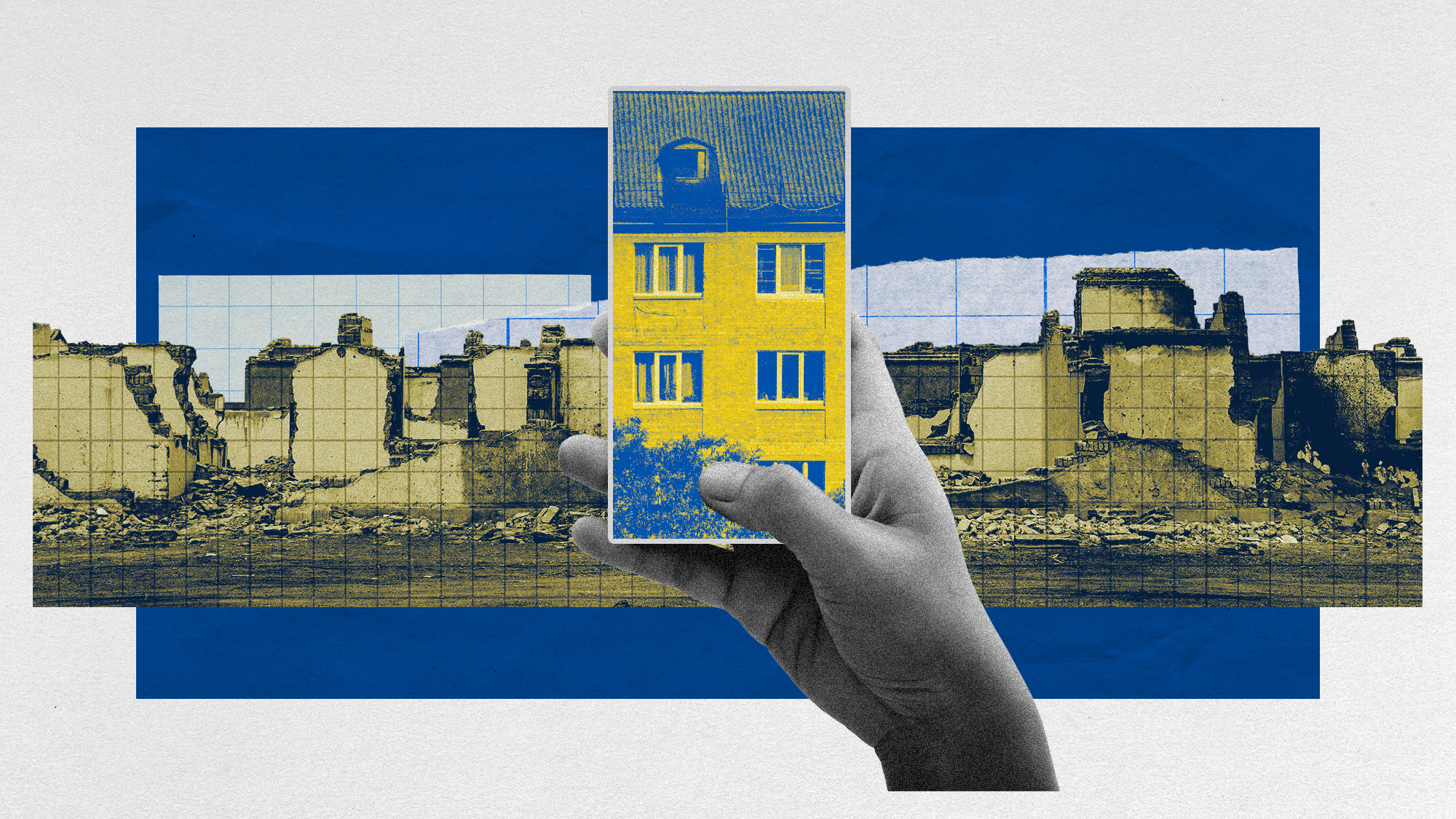Ukraine's unconventional approach to reconstruction
Digitally savvy nation uses popular app to file compensation claims, access funds and rebuild destroyed homes

A free daily email with the biggest news stories of the day – and the best features from TheWeek.com
You are now subscribed
Your newsletter sign-up was successful
Thousands of Ukrainians are using an app to file compensation claims and access funds to rebuild homes destroyed by the Russian bombardment.
It's the first digital government compensation programme for damaged or destroyed homes ever rolled out in wartime, said Foreign Policy. Since its launch last year, eRecovery has processed more than 83,000 claims by Ukrainians, and paid out more than half of them, simplifying what, in conflict zones, is typically a "tortuous and expensive process that can last decades", wrote Yuliya Panfil, director of New America's Future of Land and Housing programme, and Allison Price, senior adviser with New America's Digital Impact and Governance Initiative.
The scheme's "potential to transform the way governments get people back into their homes following a war, natural disaster, or other calamity is hard to overstate".
The Week
Escape your echo chamber. Get the facts behind the news, plus analysis from multiple perspectives.

Sign up for The Week's Free Newsletters
From our morning news briefing to a weekly Good News Newsletter, get the best of The Week delivered directly to your inbox.
From our morning news briefing to a weekly Good News Newsletter, get the best of The Week delivered directly to your inbox.
'The digital tiger'
Ukrainians have a "high degree of digital fluency and trust in digital platforms", wrote Panfil and Price, which long predates the Russian invasion. By 2019, the "tech-savvy government" had already developed the backbone of a digital public infrastructure, creating Ukraine's Ministry of Digital Transformation.
The vision, according to the Harvard Social Impact Review, was to build the "most convenient digital state in the world without bureaucracy, absolutely paperless, and without the need to visit government offices".
Mykhailo Fedorov, then a 29-year-old entrepreneur and founder of a digital marketing start-up, was chosen to lead the ministry and implement President Volodymyr Zelenskyy's vision of "the state in a smartphone". The idea was to digitise government services so that the state would work "with a few clicks" – like Uber, or Airbnb.
That year, the ministry launched Diia, a platform now used by more than half of Ukrainians for accessing electronic IDs, paying taxes and registering companies. Ukraine became the first country in the world where smartphone passports were legally equivalent to paper documents.
A free daily email with the biggest news stories of the day – and the best features from TheWeek.com
Fedorov, who is now Ukraine's deputy prime minister for innovation, education, science and technology as well as minister for digital transformation, "tapped the country's thriving tech scene", said Wired, which grew 20% in 2020, powered by a boom in outsourcing from "more expensive countries".
In 2022, within three days of the first Russian missile falling on Kyiv, the ministry had launched a campaign to pressure US tech giants to "cut off Russia", secured access to Elon Musk's Starlink satellite internet service, began accepting cryptocurrency donations to support the military, and recruited a volunteer "IT army" to "hack Russian targets". The ministry's projects made it a "linchpin of Ukraine's fight against Russia – and the country's broad support among world leaders and tech CEOs". And at last year's Davos summit, Ukraine was called the "digital tiger".
Digital infrastructure can 'pay big dividends'
Now, Diia also provides a way to donate to the Ukrainian military, or submit images and videos of Russian troop movements.
As part of eRecovery, any Ukrainian whose home has been damaged can report it through Diia, file a compensation claim and open a specialised bank account. Claimants can file from anywhere, reducing the risk of setting up a brick-and-mortar centre in a war zone, via a platform they already recognise and trust.
The digital system also "minimises opportunities for corruption and increases transparency", said Panfil and Price. The speed of processing makes it less likely that an abandoned home would become occupied by someone else.
eRecovery "appears poised to get Ukrainians back into their homes in a matter of months, not decades", reducing the risk of tens of thousands of people freezing to death in makeshift tents during winter.
But beyond Ukraine, the programme provides a "preliminary blueprint" for other countries who need to help victims of war or natural disasters. It shows that investing in digital infrastructure can "pay big dividends in moments of upheaval", and make governments "more resilient to a range of shocks and changes".
"It's painful to wonder," said Panfil and Price, how much the US and other developed countries might have benefited from a "trusted digital government platform" in the chaotic months at the start of the Covid-19 pandemic.
No matter what happens next in its desperate defence against Russia, Ukraine's wartime digital innovations serve as an example of how to "rapidly return displaced people to their homes".
Harriet Marsden is a senior staff writer and podcast panellist for The Week, covering world news and writing the weekly Global Digest newsletter. Before joining the site in 2023, she was a freelance journalist for seven years, working for The Guardian, The Times and The Independent among others, and regularly appearing on radio shows. In 2021, she was awarded the “journalist-at-large” fellowship by the Local Trust charity, and spent a year travelling independently to some of England’s most deprived areas to write about community activism. She has a master’s in international journalism from City University, and has also worked in Bolivia, Colombia and Spain.